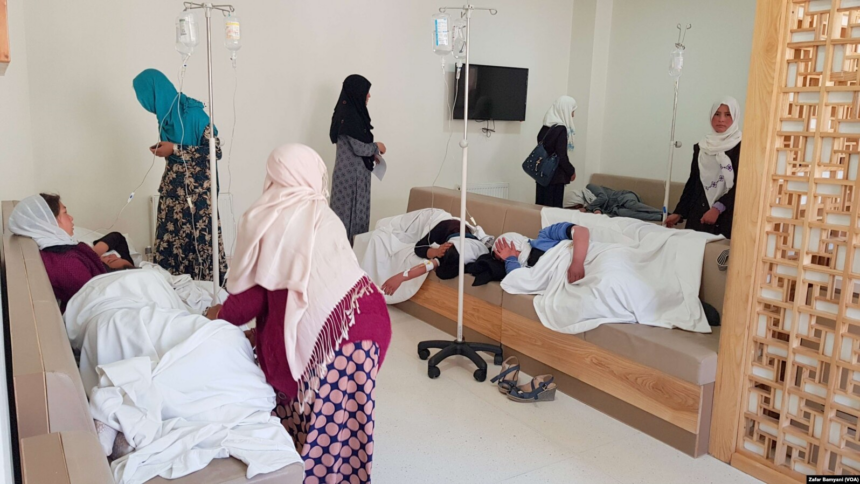RASC News Agency: A deeply troubling incident of mass poisoning has struck a girls’ school in Daikundi province, central Afghanistan, further exacerbating fears for the safety and well-being of female students amid an already repressive environment under Taliban rule. According to local sources, on Wednesday, May 7, dozens of students at Kitty Girls’ High School, located in the administrative center of the Kitty district, began experiencing acute symptoms shortly after arriving in their classrooms. Witnesses report that the girls were suddenly afflicted by intense itching, nausea, vomiting, and in some instances, fainting spells that rendered them unconscious. Several of the students had to be carried out of the school by teachers and classmates in a state of distress and disorientation.
Eyewitnesses confirmed that families and community members acted swiftly, transporting the victims to nearby medical facilities for urgent care. While medical teams continue to treat the affected students, the underlying cause of the mass illness has yet to be formally identified. Local officials have launched an investigation, but as of now, no definitive explanation whether chemical, environmental, or deliberate has been offered. Kitty Girls’ High School is one of the largest female educational institutions in Daikundi, serving over 500 students. The incident has reignited public anxiety, especially in light of a similar event reported last year at Tamran Girls’ High School, also located in the Kitty district, where students and teachers exhibited comparable symptoms of poisoning under suspicious circumstances.
Health officials in Daikundi have confirmed that toxicology screenings and environmental tests are underway, and a formal statement is expected in the coming days. Meanwhile, civil society organizations and local elders are calling for transparency, independent oversight, and increased protection for educational facilities particularly for girls’ schools, which have become increasingly vulnerable in the current political climate. This latest incident underscores the growing threat to girls’ education in Afghanistan, a sector already gutted by the Taliban’s draconian restrictions. While provinces such as Daikundi home to a predominantly Hazara population have continued to defy the regime’s bans on female education, such acts of targeted disruption pose serious risks to the remaining pockets of academic resilience in the country.
International human rights organizations, including Human Rights Watch and Amnesty International, have condemned the lack of accountability for similar past events, calling on the United Nations and other global bodies to press for independent investigations. In a climate where educational freedom has been steadily eroded, incidents of mass poisoning not only endanger lives but threaten to dismantle the last remaining avenues of hope for Afghanistani girls. As the investigation unfolds, RASC News Agency will continue to monitor developments closely and provide updates on the condition of the students and the broader implications of this troubling event.






